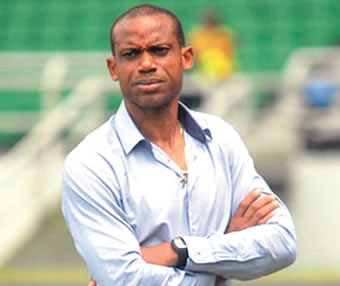Nigeria’s World Cup Qualification Woes: A Deep Dive into Systemic Failures
The Nigerian Super Eagles’ potential absence from the 2026 World Cup stage paints a grim picture of the state of football in the nation. More than just a missed tournament, it signifies a culmination of long-standing issues plaguing the sport at various levels. Former captain Sunday Oliseh attributes this looming failure to the team’s inability to insulate itself from the broader problems affecting Nigerian football, highlighting a complex interplay of administrative shortcomings, player accountability, and a lack of winning mentality. The situation is a stark reminder that the national team doesn’t operate in a vacuum; it’s a reflection of the larger footballing ecosystem.
Oliseh’s critique extends beyond immediate on-field performance. He points to deeper, systemic issues that have hampered the Super Eagles for years. These include administrative inefficiencies, rumored unpaid bonuses, and a general lack of professionalism. The inability of the players to rise above these challenges and take ownership of their performance draws sharp criticism from the former captain. Oliseh questions the players’ acceptance of such conditions, contrasting it with the mentality of his generation, which would not have tolerated such discrepancies. This highlights a potential shift in player mentality, where the drive to succeed despite external challenges appears to have diminished.
The current predicament isn’t an isolated incident but rather a continuation of a worrying trend. The Super Eagles’ struggles aren’t merely a result of recent poor performances; they are a manifestation of long-standing, unresolved issues. Oliseh’s assessment that Nigeria is “not good enough” in all departments underscores the depth of the problem. This systemic failure encompasses administrative shortcomings, player complacency, and a lack of overall quality within the team. The implication is that a fundamental overhaul is required, addressing not just the symptoms but the root causes hindering the Super Eagles’ progress.
The issue of unpaid bonuses becomes a focal point in Oliseh’s analysis. Beyond the financial implications, it represents a lack of respect for the players and a disregard for their professional commitment. While administrative challenges may exist, Oliseh emphasizes the players’ responsibility to demand better treatment and hold the federation accountable. This highlights a crucial element of player empowerment and the need for a stronger collective voice to address issues that impact their performance and well-being. The acceptance of such conditions, according to Oliseh, not only reflects poorly on the players but also perpetuates a cycle of dysfunction within Nigerian football.
The looming absence from the World Cup serves as a harsh wake-up call for Nigerian football. It’s not just about missing a prestigious tournament; it’s about the potential long-term consequences for the development and growth of the sport in the country. The failure to qualify twice in a row underscores the need for immediate and comprehensive reform. Oliseh’s critique highlights the urgency of addressing the systemic issues plaguing Nigerian football. He stresses that unless these deep-rooted problems are tackled head-on, the Super Eagles’ struggles will persist.
Looking ahead, the final two qualifying matches against Lesotho and Benin Republic hold significant weight, but their impact may be limited given the points deficit. The uncertainty surrounding the FIFA decision on South Africa’s potentially forfeited points further complicates the situation. However, regardless of the outcome of these matches, the critical takeaway remains the need for a comprehensive introspection and restructuring of Nigerian football. This requires addressing the administrative shortcomings, fostering a culture of accountability among players, and investing in the development of talent at all levels. Only through such comprehensive reform can the Super Eagles hope to regain their place among Africa’s footballing elite and avoid repeating the disappointments of recent years.














